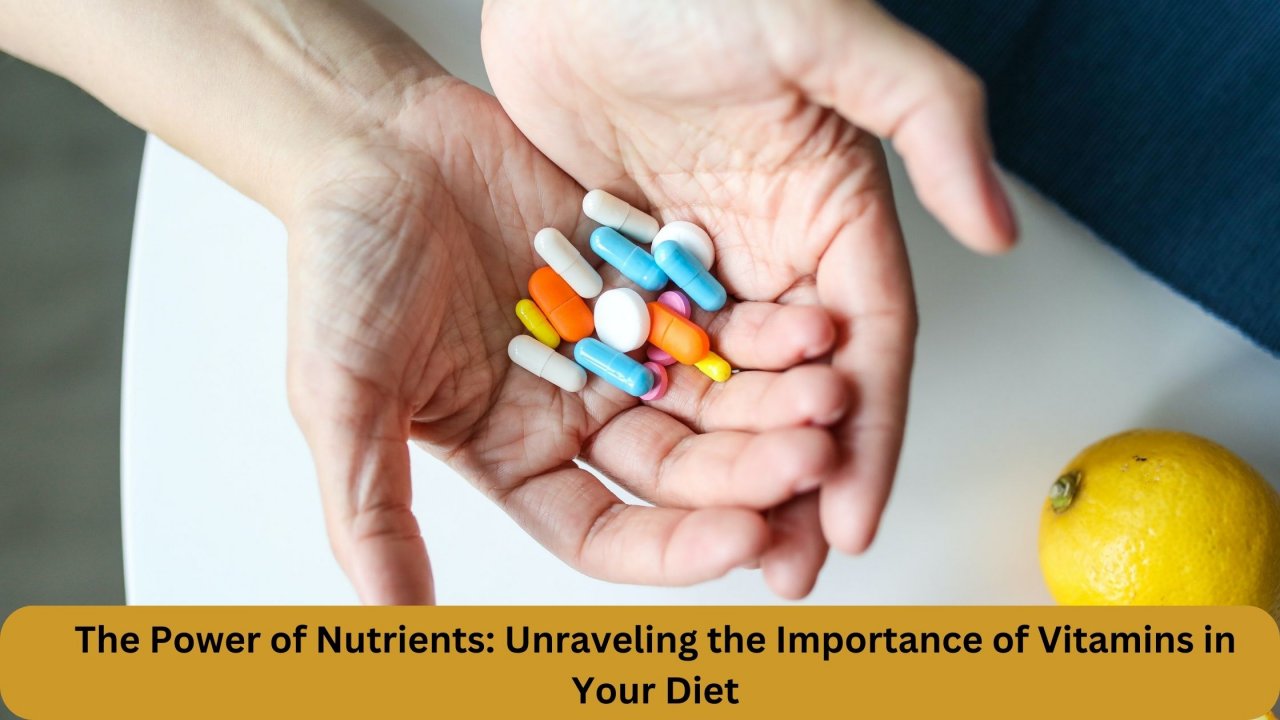The Power of Nutrients: Unraveling the Importance of Vitamins in Your Diet

In the pursuit of a healthy lifestyle, we often hear about the importance of a well-balanced diet. Among the many essential components that contribute to overall well-being, vitamins play a crucial role. These micronutrients are essential for various bodily functions, and their presence or absence in our diet can significantly impact our health. In this blog, we will delve into the world of vitamins and explore the significance of including them in your daily diet. From Fish Oil, Flax Oil & Omegas to Greens Food, Herbs, Minerals, Multivitamins, and Supplements, we will cover an A to Z guide on vitamins to help you make informed choices for a healthier life.
- Fish Oil, Flax Oil & Omegas:
Omega-3 fatty acids, found abundantly in Fish Oil and Flax Oil, are essential for maintaining heart health, reducing inflammation, and supporting brain function. These healthy fats are particularly beneficial for cognitive development in children and can help lower the risk of heart diseases and stroke in adults. Including sources of omega-3s in your diet, such as fatty fish, flaxseed, and walnuts, can have far-reaching benefits for your overall well-being.
- Greens Food:
Green leafy vegetables are nutritional powerhouses packed with vitamins, minerals, and antioxidants. Spinach, kale, broccoli, and other greens are rich in vitamins A, C, E, and K, along with essential minerals like iron and calcium. Regular consumption of greens promotes healthy vision, strengthens bones, boosts immunity, and aids in maintaining a healthy weight. Including a variety of greens in your diet can enhance your nutrient intake and lead to a healthier, more vibrant you.
- Herbs:
Herbs not only add flavor to our meals but also provide a wealth of health benefits. Certain herbs like basil, oregano, and cilantro contain vitamins and antioxidants that support digestion, reduce inflammation, and boost the immune system. Herbal teas made from chamomile, ginger, or peppermint can also aid in relaxation and digestion. Embrace the goodness of herbs to add zest to your dishes while nourishing your body from within.
- Minerals:
While vitamins often steal the spotlight, minerals are equally vital for maintaining good health. Minerals like calcium, magnesium, potassium, zinc, and selenium play key roles in bone health, muscle function, nerve transmission, and immune support. Incorporating a diverse range of whole foods, including nuts, seeds, dairy products, and leafy greens, can ensure you meet your daily mineral requirements.
- Multivitamins:
Even with a balanced diet, it can be challenging to obtain all the necessary vitamins and minerals from food alone. This is where multivitamins come to the rescue. Multivitamin supplements offer a convenient way to fill in potential nutritional gaps and support overall health. However, it is essential to consult a healthcare professional before starting any new supplement to ensure it aligns with your specific needs.
- Supplements:
Apart from multivitamins, other supplements can cater to specific needs or health goals. For instance, Vitamin D supplements are recommended for individuals with limited sun exposure, and iron supplements may be necessary for those with iron-deficiency anemia. It is crucial to seek guidance from a healthcare expert before adding any supplements to your routine, as excessive intake can be harmful.
- Vitamins A-Z:
Vitamins come in various forms, each offering unique health benefits. Here's a quick rundown of some essential vitamins and their roles:
- Vitamin A: Supports vision, immune function, and healthy skin.
- Vitamin B-complex: A group of vitamins that aid in energy production, nerve function, and red blood cell formation.
- Vitamin C: An antioxidant that boosts immunity and aids in collagen production for healthy skin and joints.
- Vitamin D: Promotes bone health and supports the immune system.
- Vitamin E: An antioxidant that protects cells from damage and helps maintain healthy skin.
- Vitamin K: Essential for blood clotting and bone health.
Conclusion:
Incorporating a diverse range of vitamins and minerals into your daily diet is vital for achieving optimal health and well-being. Fish Oil, Flax Oil & Omegas, Greens Food, Herbs, Minerals, Multivitamins, and Supplements all contribute to supporting different bodily functions and can play a significant role in disease prevention and overall vitality. Remember to consume a balanced diet, seek guidance from healthcare professionals, and avoid excessive intake of supplements. Embrace the power of nutrients and pave the way for a healthier and happier you!













